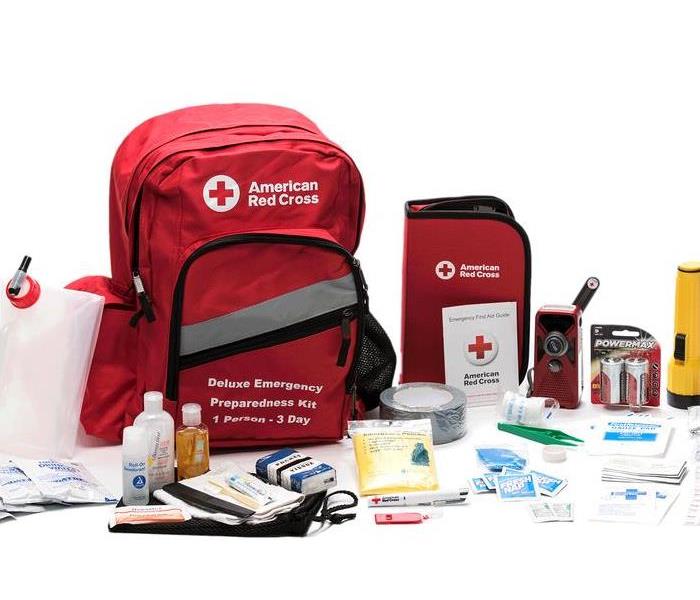Are You Prepared for an Emergency or Power Outage?
6/5/2020 (Permalink)
You may need to survive on your own after an emergency for several days, sometimes up to a week. This means having your own food, water and other supplies in sufficient quantity to last for at least 72 hours, or until emergency crews arrive. Local officials and relief workers will be on the scene after a disaster, but they cannot reach everyone immediately. The nature of the disaster road conditions or flood waters may prevent help from arriving in a timely manner.
Additionally, basic services such as electricity, gas, sewage treatment, water and telephones may be cut off. Your supplies kit should contain items to help you manage during these outages.
If the power goes out keep your pipes from freezing by shutting off the valve that allows water to come into your home. Then, open any drain valves and all faucets and let them run until the pipes are empty (it's helpful to identify these valves in advance). Next, flush all toilets and pour denatured alcohol into toilets and sinks to prevent water in the traps from freezing. Do NOT use automotive antifreeze in case there's trouble with your water system; you don't want the antifreeze to contaminate your drinking water. You may, however, use nontoxic antifreeze that's made for winterizing motor homes.
Be prepared for a power outage by keeping necessary items centrally located in your home. Take the time to ensure that everyone in your family is aware of the "kit." Periodically check your kit to see that batteries operate properly. The following is a list of items that are suggested:
1. Flashlights for each family member
2. Battery-operated radio and clock
3. Extra batteries
4. Containers of bottled water (at least 1 gallon, per person, per day)
5. Canned, freeze-dried or dehydrated food, powdered milk, baby supplies for infants
6. Non-electric can opener
7. List of important phone numbers
8. First-aid kit
9. Prescriptions
Stock canned foods, dry mixes and other staples that do not require refrigeration, cooking, water or special preparation. Be sure to include a manual can opener and eating utensils. The following items are suggested when selecting emergency food supplies. You may already have many of these on hand.
•Store at least a three-day supply of non-perishable food.
•Choose foods your family will eat.
•Remember any special dietary needs.
•Avoid foods that will make you thirsty.
•Choose salt-free crackers, whole grain cereals and canned foods with high liquid content.
•Ready-to-eat canned meats, fruits, vegetables and a can opener
•Protein or fruit bars
•Dry cereal or granola
•Peanut butter
•Dried fruit
•Nuts
•Crackers
•Canned juices
•Non-perishable pasteurized milk
•High energy foods
•Vitamins
•Food for infants
•Comfort/stress foods
These and many other helpful tips are available at ready.gov. Here is the link to tips for before, during, and after a severe weather event; http://www.ready.gov/severe-weather and https://www.ready.gov/build-a-kit. When severe storms strike Florida’s First Coast knowing what to do until SERVPRO of Mandarin arrives will make a difference. Contact us at 904-636-0044.






 24/7 Emergency Service
24/7 Emergency Service